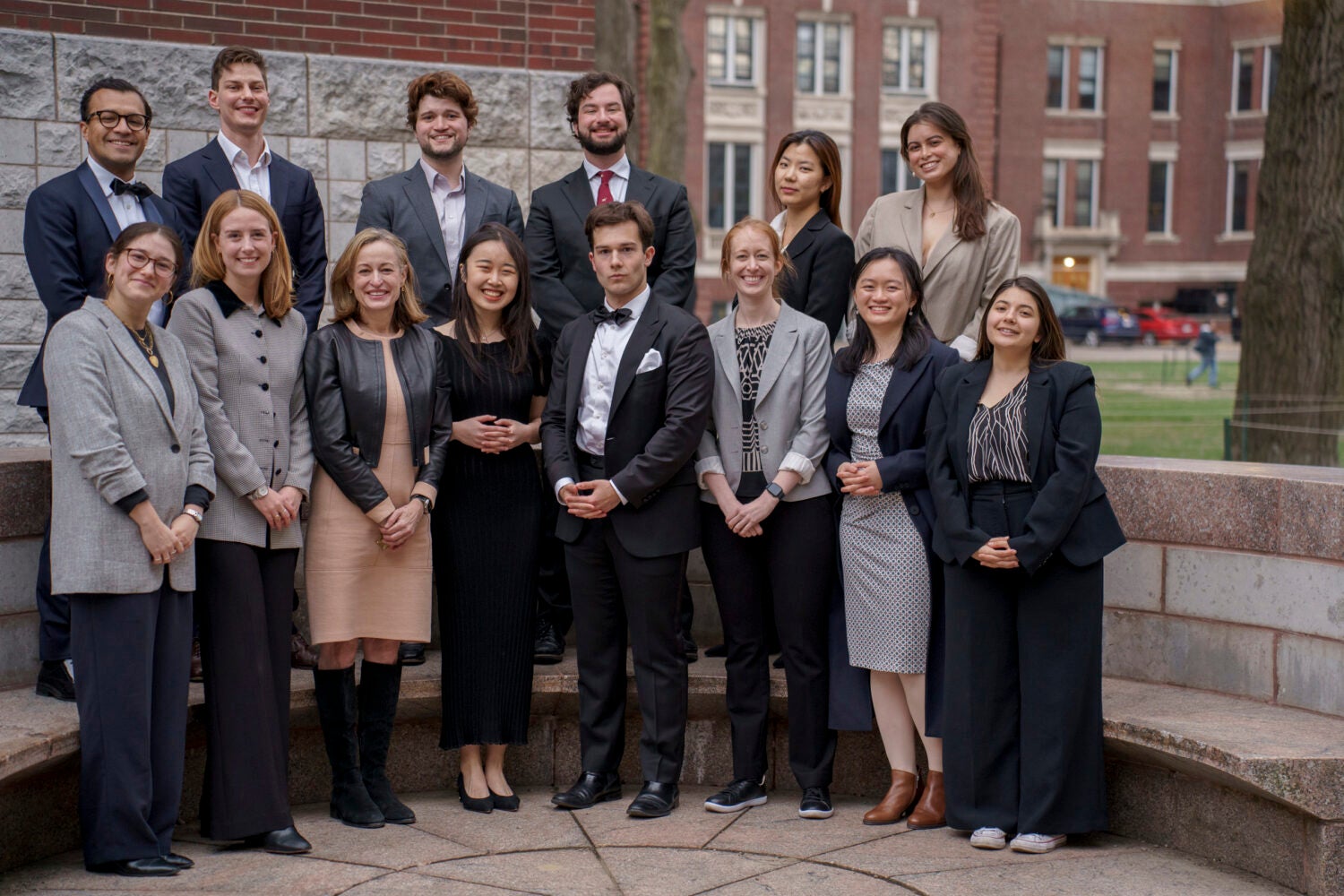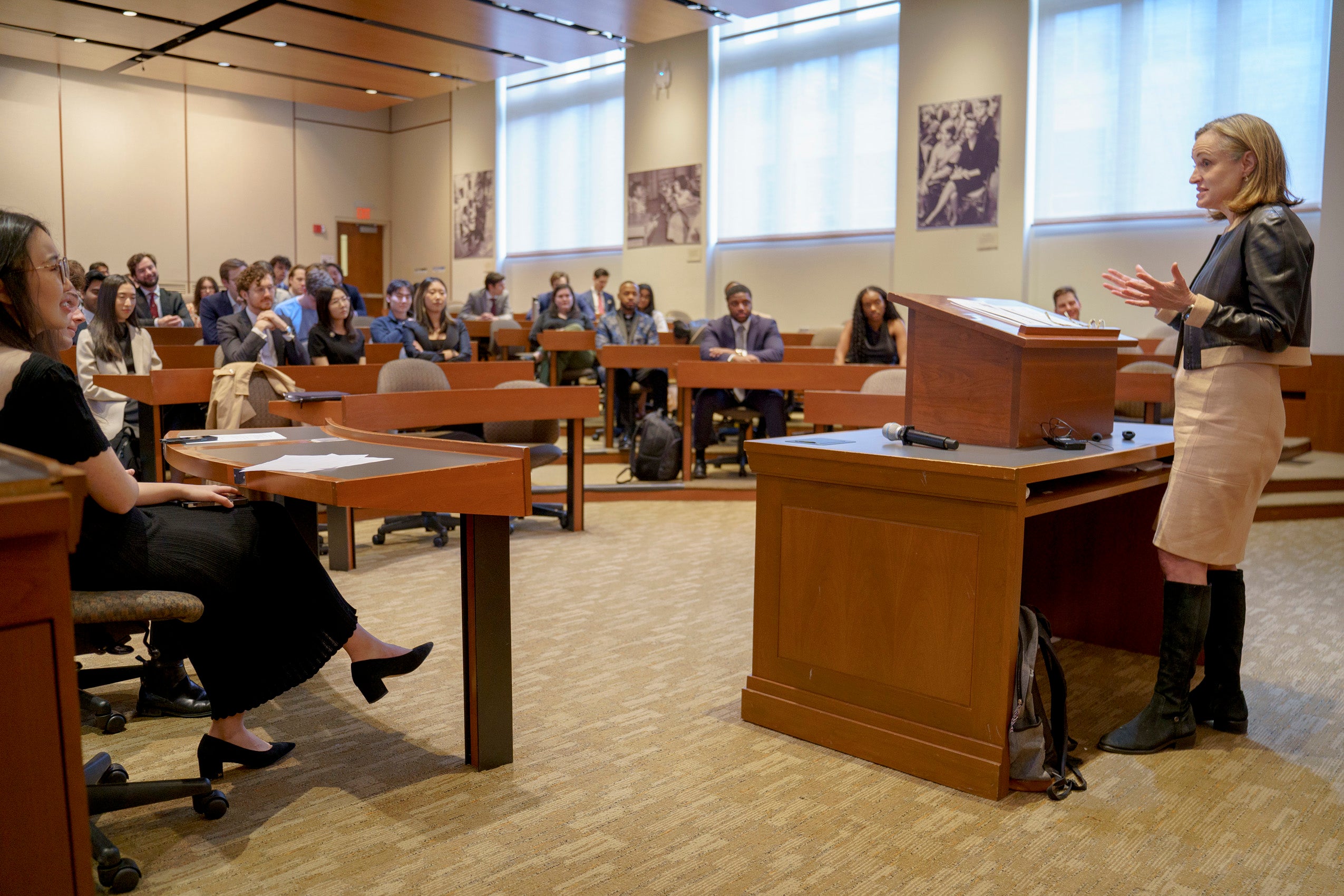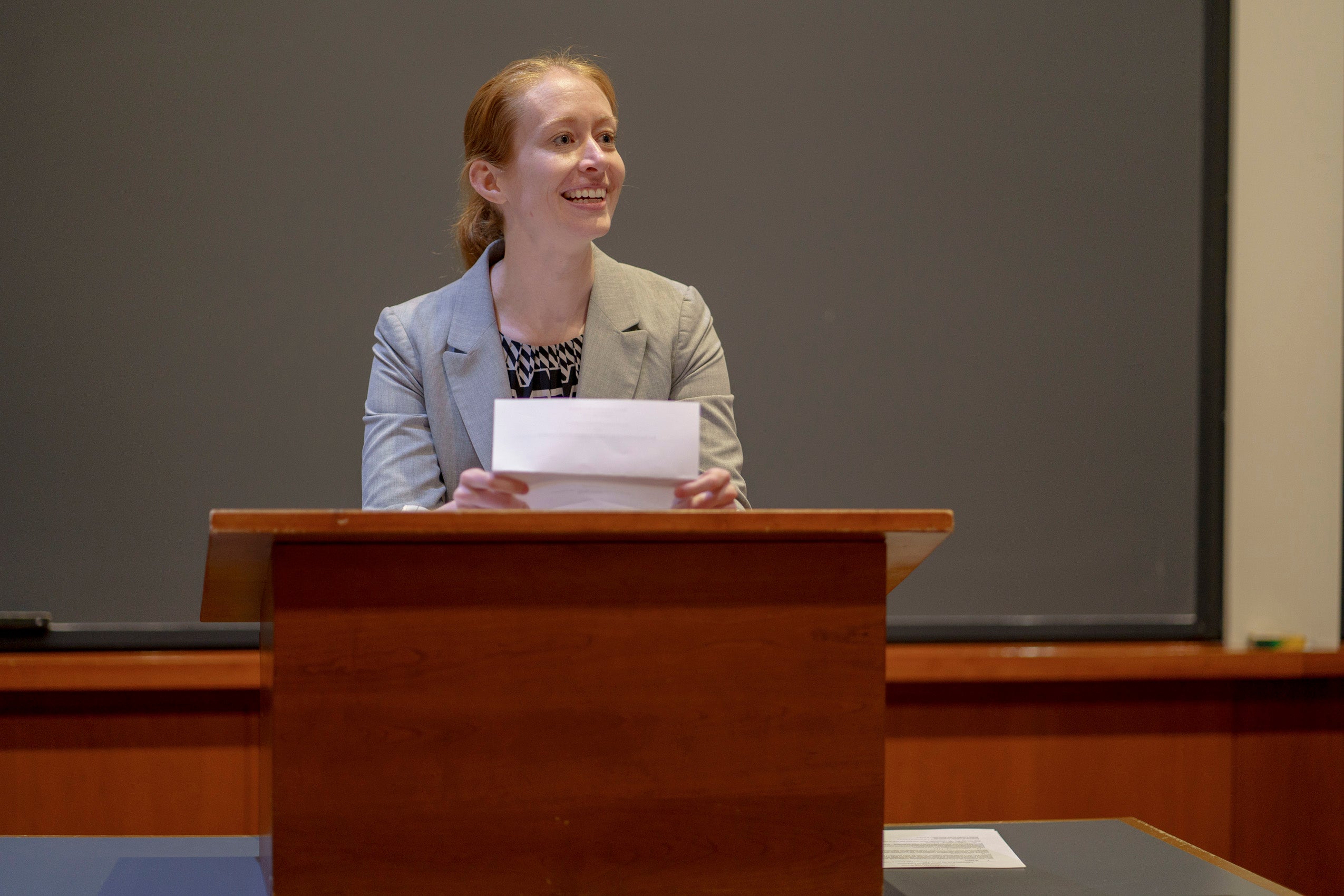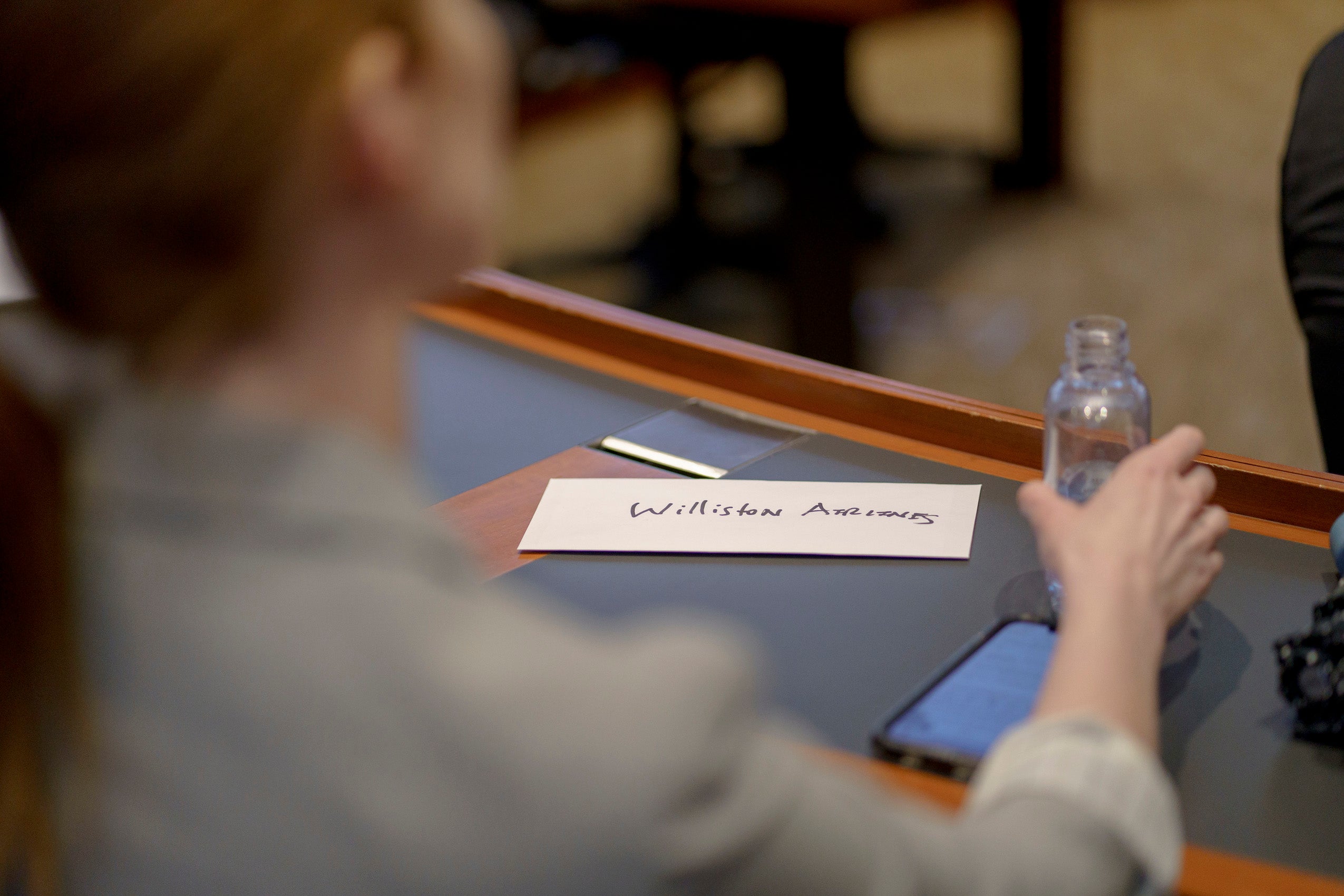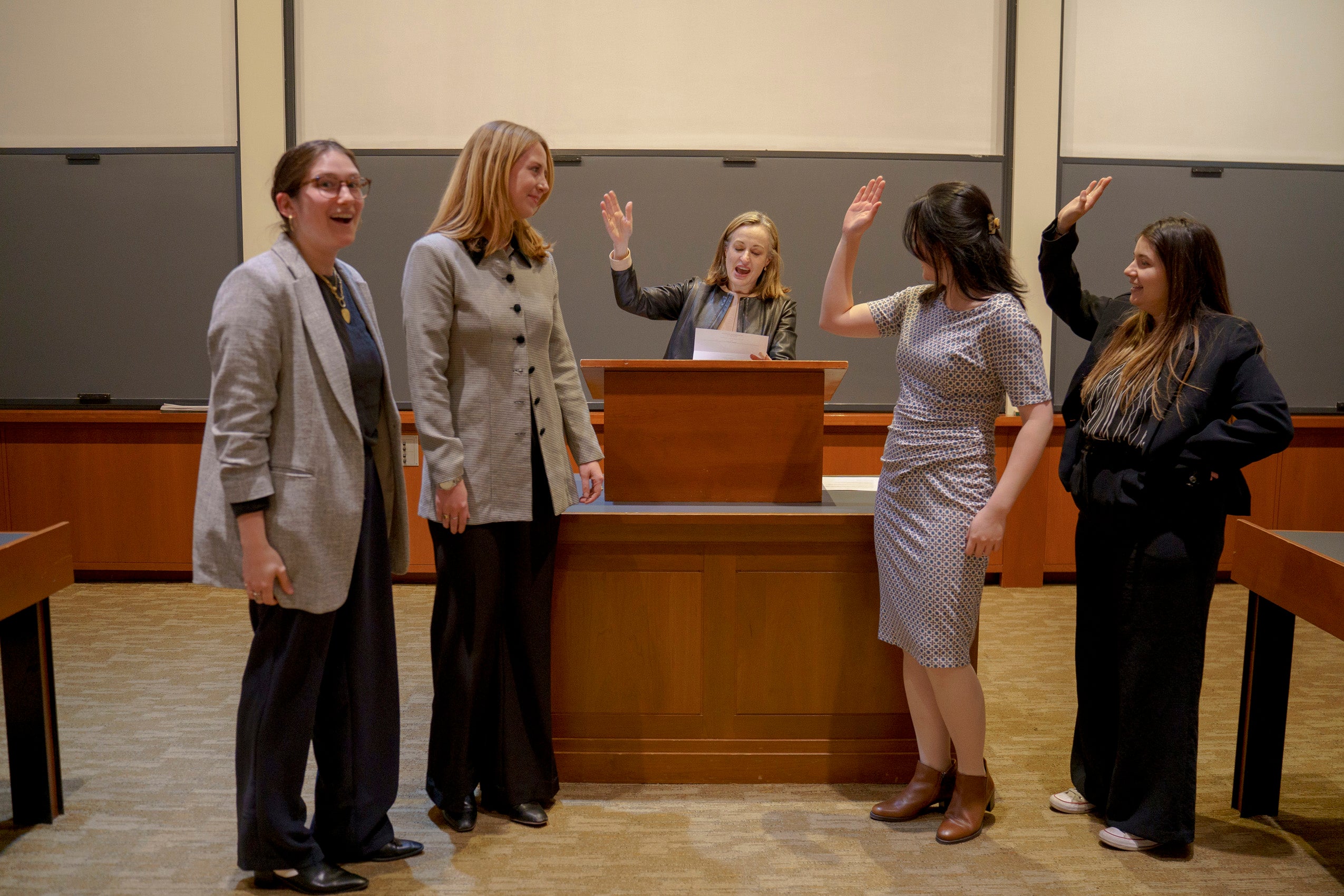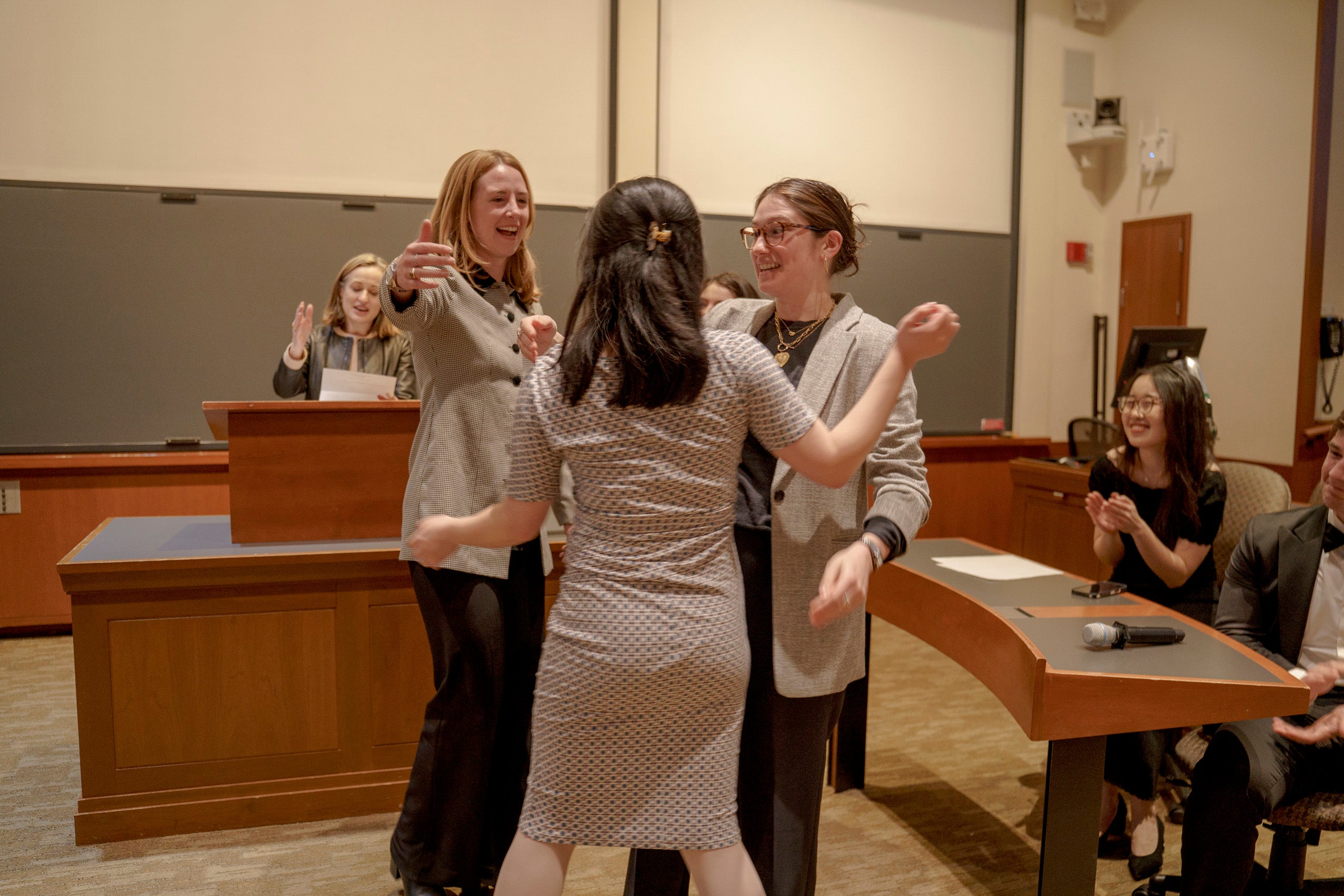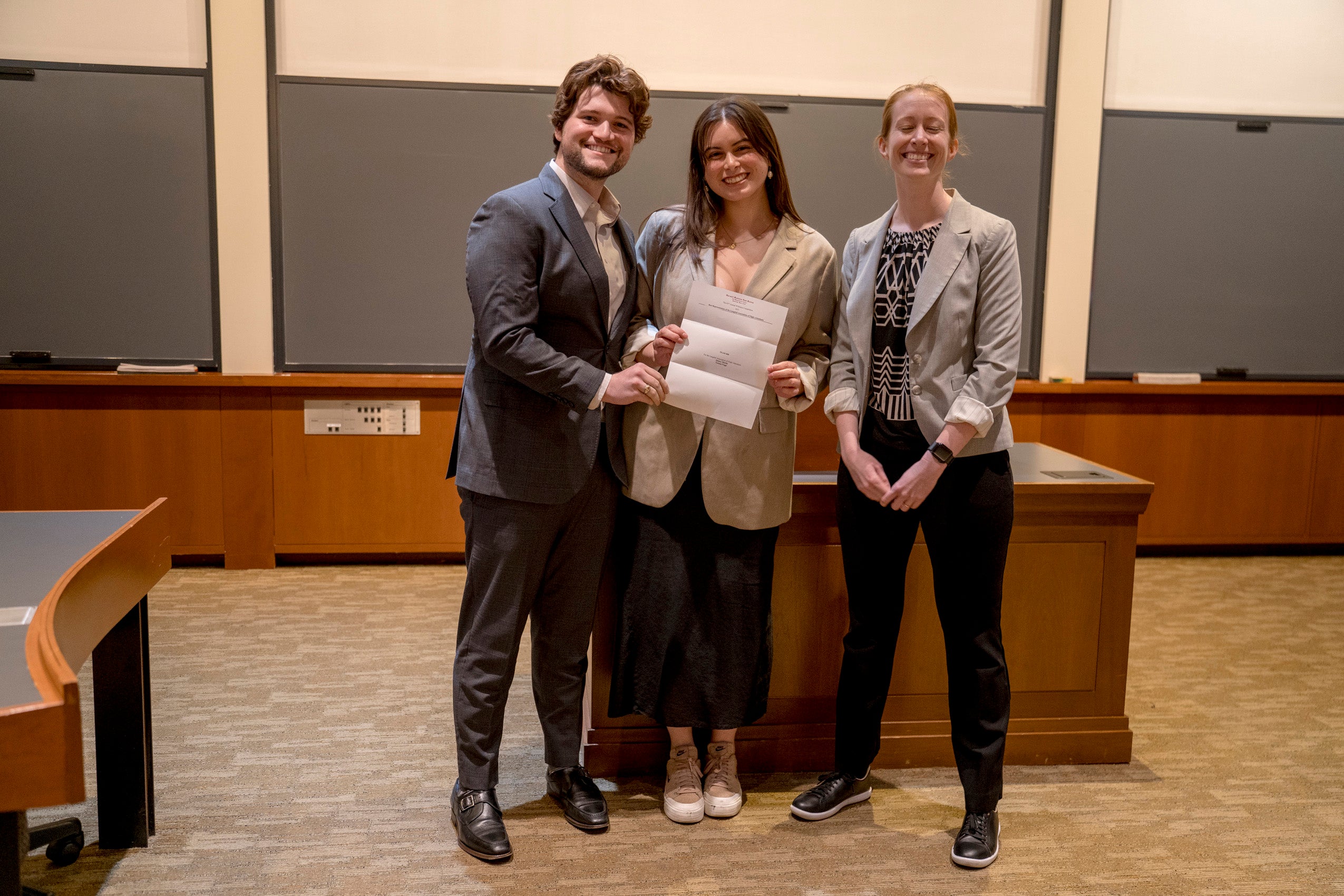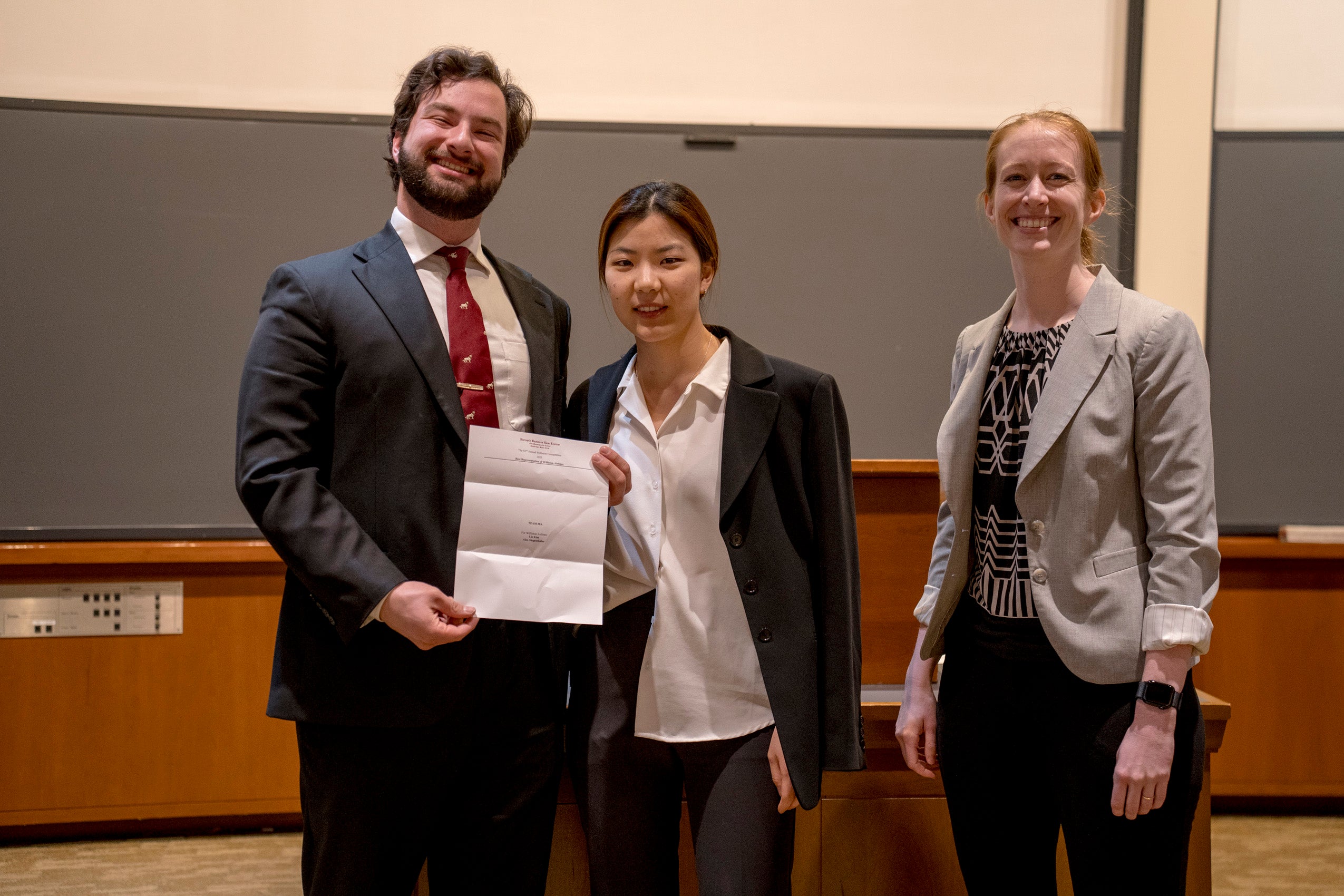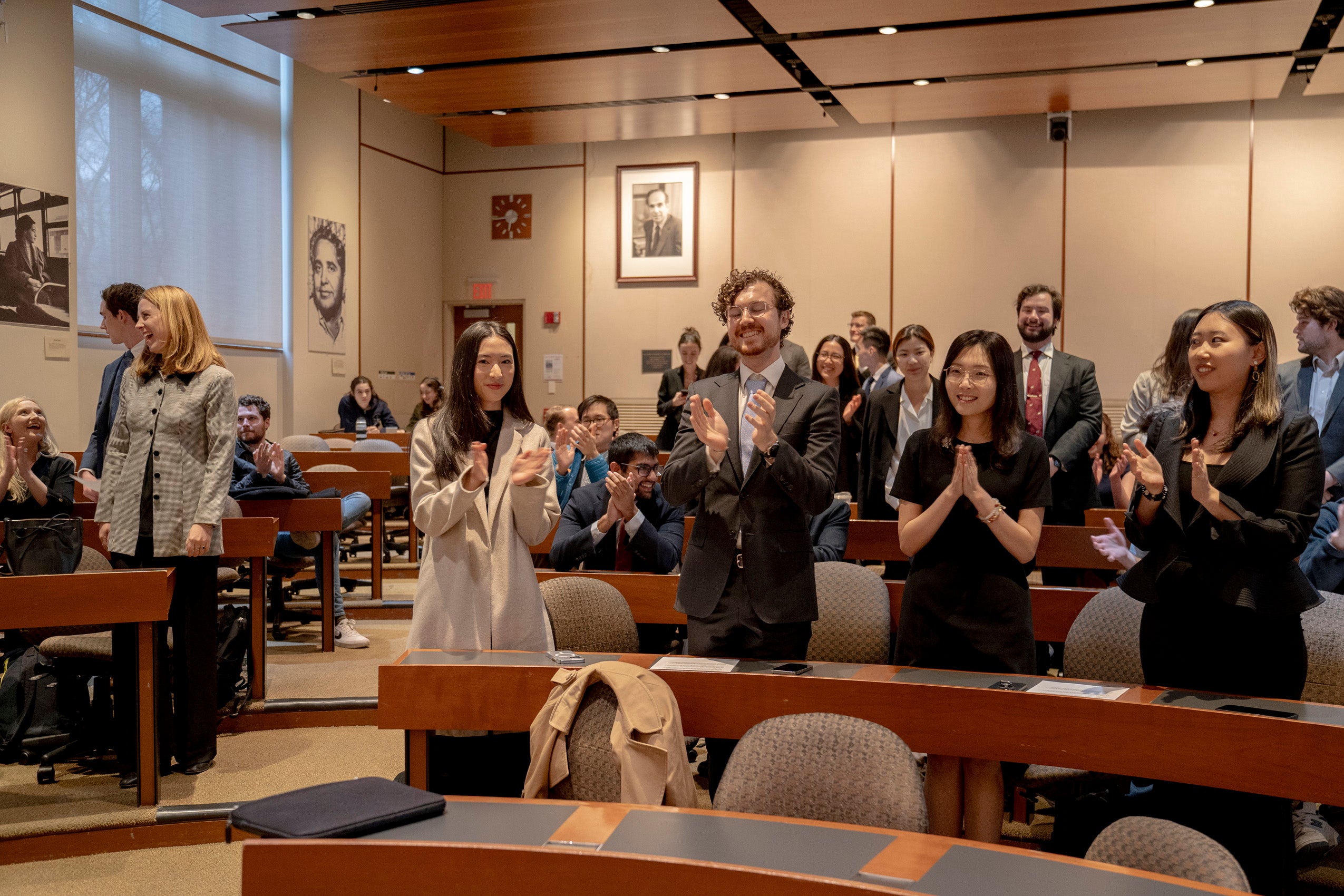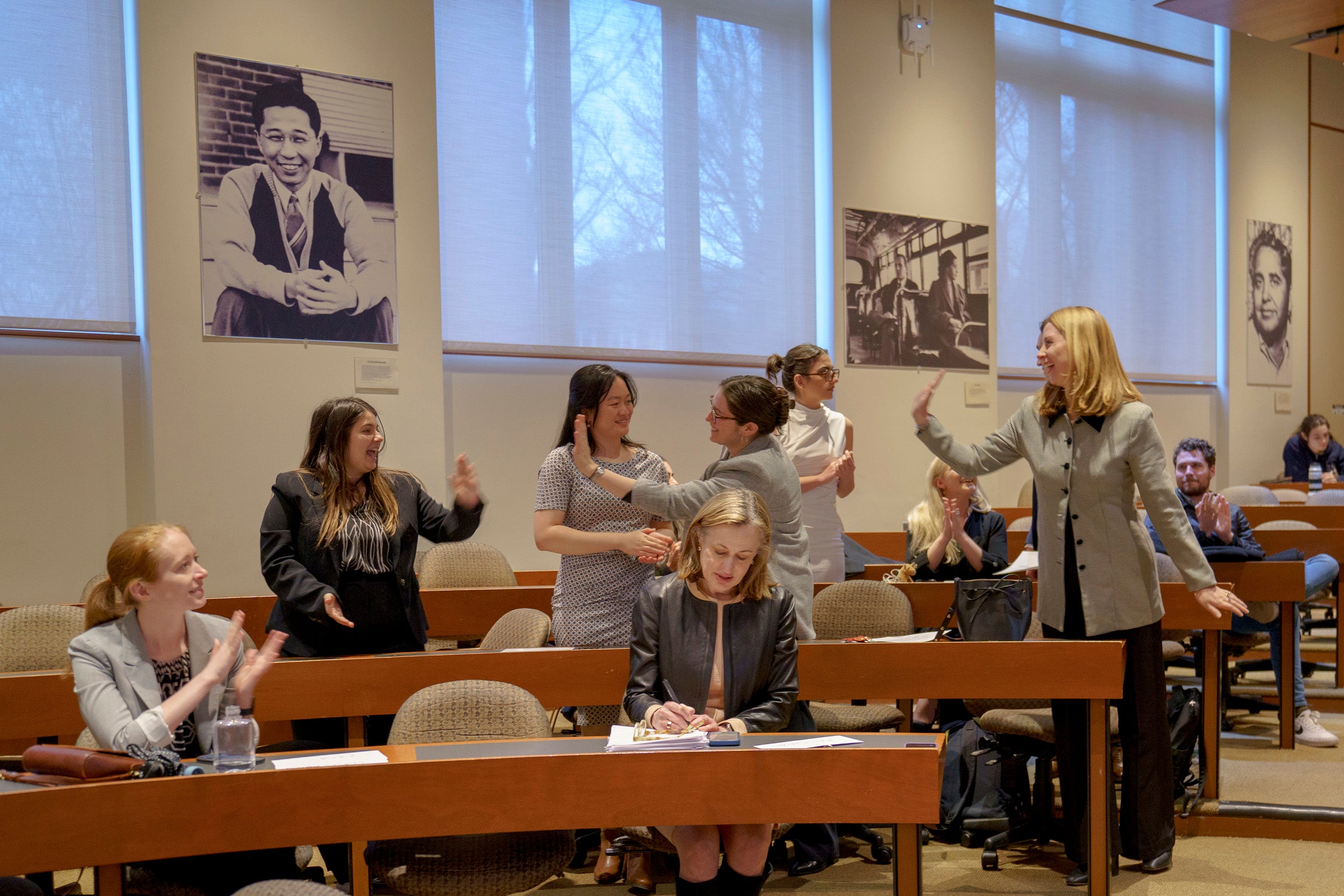When Joseph “Joey” Ravenna ’25 first arrived at Harvard Law School in the fall of 2022, he was intrigued by the plaques he saw in Langdell Hall honoring the winners of something called the Williston Negotiation & Contract Drafting Competition.
There were several plaques, each with a decade’s worth of names dating back to the middle of the 20th century, but the last winners had been announced in 2015. Ravenna couldn’t help but compare the plaques to those just across the hall that honor the winners of the Ames Moot Court Competition, one of the nation’s most prestigious events featuring appellate brief writing and advocacy.
“Everyone’s heard of Ames; everyone goes to Ames,” he said. “But there was this parallel competition lurking in the library. Who were these other winners? Why did the competition stop?”
Ravenna did a little digging and learned that the Williston Competition, exclusively for first-year students, was named for the late, great Harvard Law School Professor Samuel Williston LL.B.-A.M. 1888, and that it focused on corporate and transactional law. After debuting in 1957 and running consistently for decades, the competition had lapsed during a time of transition for the student organizations that had partnered on it.
As it happens, Ravenna and friend Savannah Huitema ’25 had been searching for ways that business-minded students at the law school could get more involved on campus. They were also campaigning to be co-presidents of the Harvard Business Law Review. After learning more about the Williston Competition — including from Assistant Dean for Admissions and Chief Admissions Officer Kristi Jobson ’12, whom they discovered had been a past winner — they decided to revive the event as part of their platform.
Earlier this month, their efforts of more than a year came to fruition when the 63rd Williston Negotiation & Contract Drafting Competition kicked off on April 3.
More than 60 first-year students signed up to compete in pairs as they negotiated the details of a deal, memorialized in a private memo to a client and a final contract signed by both parties. This year’s competition involved negotiations between the fictitious Williston Airlines, a major carrier in North America, and the Lansdale Association of Flight Attendants (LAFA), one of Williston’s labor unions, regarding significant changes to the union and Williston labor agreement.
The first round of judging was done by second- and third-year students on the Business Law Review’s submissions team. Five final round judges — including Jobson, Clinical Professor Rachel Viscomi ’01, director of the Harvard Negotiation & Mediation Clinic; Lecturer on Law Lisa Dicker ’14, a clinical instructor at the Harvard Negotiation & Mediation Clinical Program; Dorothy DeWitt ’94, the founder and CEO of Tölt Strategies; and Andra Greene ’81, a mediator and arbitrator at Phillips ADR Enterprises — picked the winners in two categories for each side of the transaction. The first group was for best overall contract, based on the value created by both parties in the contract. The second was presented for best overall representation, based on a private memo from the attorneys to their respective parties about what value they were able to obtain for their client in the deal.
The competition closed on April 11 and winners were announced at the review’s annual banquet on April 18 [see sidebar].
“Our predecessors built this competition,” Ravenna said. “It felt so fulfilling to follow in their footsteps. Harvard Law School has a really rich corporate law and business law history and has recognized people who have been successful in this space for a long time.”
Huitema noted that many Williston Competition alumni list their participation or success in the event in their professional biographies.
“We thought it would be a fun gift for them to see that something they participated in and put stock in is now revived and carrying on,” she said.
Practical experience honoring a practice-oriented professor
Williston was a renowned law professor and contracts expert who taught at the law school for nearly half a century. He graduated from Harvard College and worked for a few years as a railroad survey assistant and a teacher before enrolling at Harvard Law. An editor on the first volume of the Harvard Law Review, he graduated first in his class in 1888 and clerked for U.S. Supreme Court Justice Horace Gray before joining the faculty in 1890. He became a full professor in 1895 and remained there for the rest of his career. Although he retired in 1938, he kept an office on campus for decades thereafter.
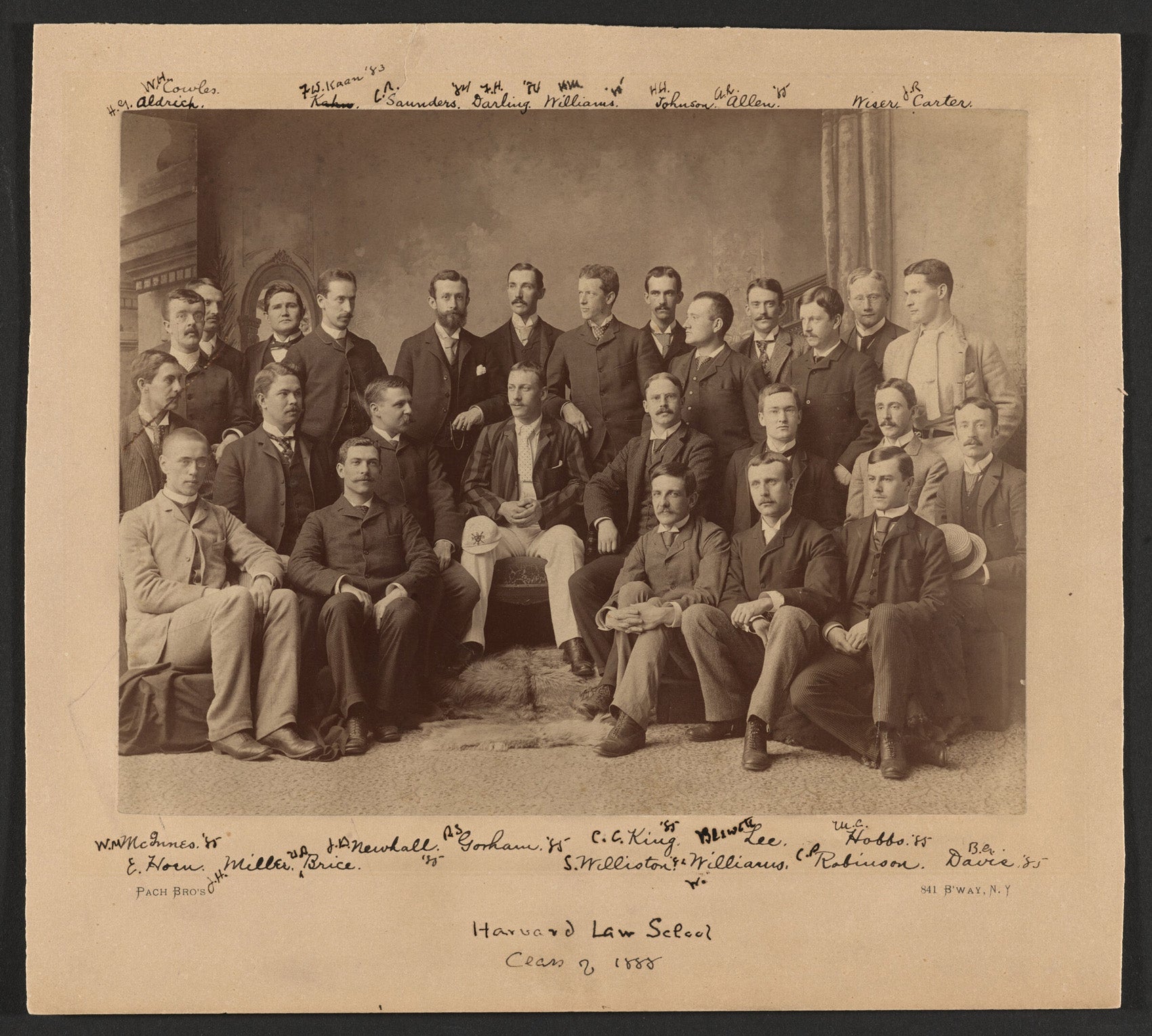
When he died in 1963 at the age of 101, Time magazine called him a “Yankee Socrates.” One of the most widely cited legal scholars ever, he wrote more than 50 articles on contract law, wrote or edited 18 casebooks, and produced several treatises. His most famous, Williston on Contracts, was published in 1920 and is still in use. Williston’s last law review article came out when he was 88.
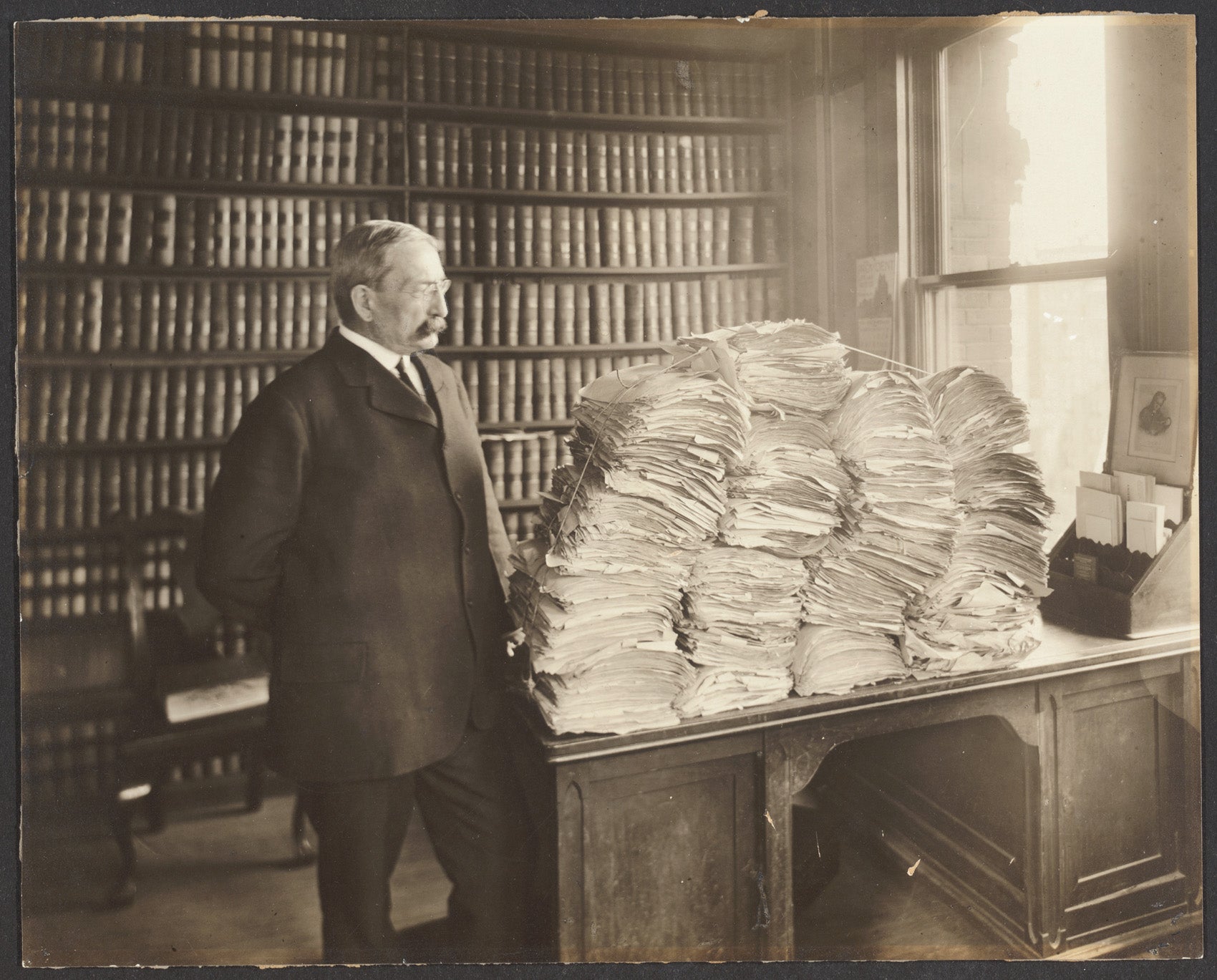
The Williston Competition can be traced back to the Williston Law Club, which was formed in 1892 as one of many moot court clubs in the late 19th century, according to research by Ravenna, Huitema, and competition director Rebecca Qiu ’26.
“It was analogous to a dozen other moot courts at the time. That was the way people competed and met each other in the late 1890s,” Ravenna said.
At first, the club’s moot courts were pretty standard fare, tackling problems based in administrative law or appellate litigation. But, Ravenna said, “They quickly took on their own flavor, becoming more corporate over time.”
Early commercial problems focused on factories or department stores, even carriages being run off the road. A competition based on such practical matters was a befitting namesake for Williston, who continued to practice after joining the faculty and once called the law a “pragmatic science.” Williston’s many published works were written for an audience of practitioners.
“Law is made for man, not man for the law,” he wrote.
Bringing negotiations and contracts to life
When Jobson, the current admissions dean, was a student, the Williston competition was a big deal among participants in the Negotiation Workshop. Receiving an email about the event, she decided to sign up. She had heard of Williston the professor — only because her own contracts professor, the late Charles Fried, regularly cited him and had his students read excerpts from “Williston on Contracts.” But, she laughed, “I had never drafted a contract in my life; I don’t think I had ever even looked at a contract. I signed up in the spirit of, ‘You’re a 1L; it’s your first year; try everything.’”
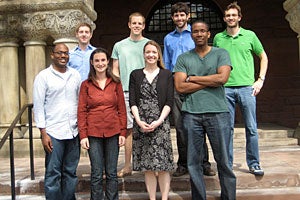
Jobson loved the experience, and she, her partner Aaron Dalnoot ’12, and the two students on the other side of the table won best contract. The competition that year featured a fast-food chain, McMillin’s, that wanted to open a restaurant in a beloved neighborhood but was facing pushback from a local community group called Save Our Square. To head off a potentially acrimonious permitting process, the company decided to negotiate directly with the neighborhood group. Ultimately, as Jobson remembers it, the neighborhood group requested that the company pay to rebrick the surrounding sidewalks. McMillin’s agreed to do so if it could include some “artful” M’s in the bricks in front of its location.
“The thing that’s so brilliant about the competition is that it’s not just you and your partner; it’s you and your partner and your opposing people — how did you work together as a team of four,” Jobson said. “One of the biggest joys of the whole thing was getting to see the creativity from the people opposite us.”
When Jobson returned to Harvard Law in the spring of 2018 to assume her current role in admissions, she asked about the competition and was surprised to learn it had lapsed. When Ravenna and Huitema reached out in their efforts to revive the event, she was delighted to help, even digging up her old Williston materials to share for context.
“I really admire them,” she said of the organizers. “They’re bringing back history. It’s really thrilling to see them take the initiative.”
A focus on the future
Ravenna, Huitema, and Qiu say they have taken steps to ensure the historic competition continues. They have created an advisory board with representatives from Harvard Law School programs and student organizations to run the event and are seeking to codify the competition with an amendment to the Harvard Business Law Review’s constitution. They’ve also made participation a requirement for students who want to serve on that publication’s upper masthead.
“We want to make sure there will be community involvement for broader Harvard Law School groups so that, this time around, the competition goes on without stopping,” Qiu said.
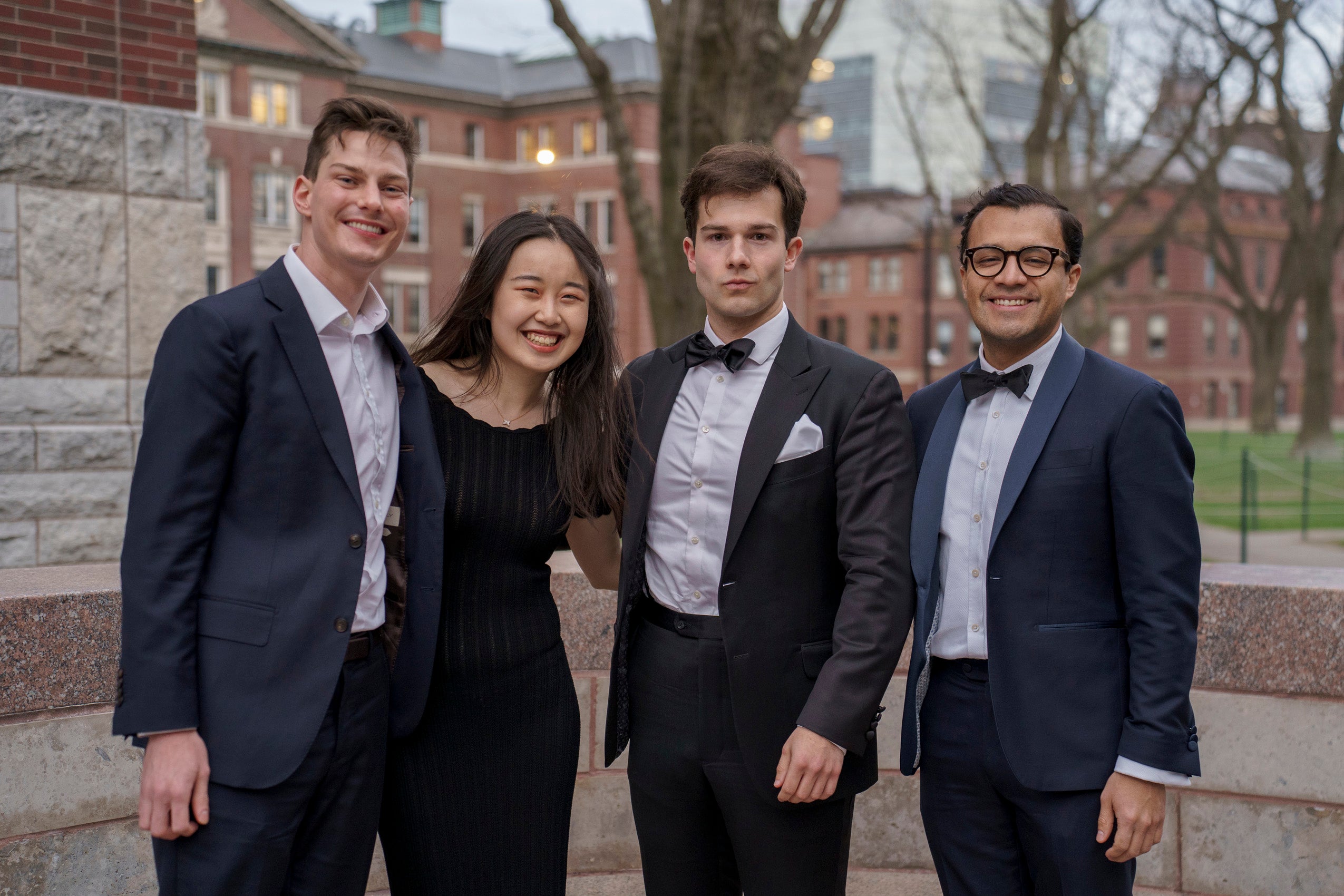
For all three students, the process has been a labor of love. They set out to create a space where students interested in corporate and transactional law could distinguish themselves on campus, and they succeeded, even though they didn’t get the chance to participate.
“I would have loved it if the competition had existed when we were starting out, but I’m glad others will get the opportunity,” Huitema said.
Ravenna agrees.
“We’re excited this is a way we can give back,” he said. “We aren’t in contention to have our names on the plaques, but we are building something for generations to come at the law school.”
Want to stay up to date with Harvard Law Today? Sign up for our weekly newsletter.
